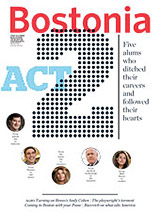In August, Mills College, in Oakland, Calif., announced that it would accept applications from any student who self-identifies as a woman, regardless of her sex or gender assignment at birth, becoming the first women’s college to do so.
I applaud this historic decision and welcome the news that not far from Boston, Mount Holyoke College, in South Hadley, Mass., announced even more inclusive policies in September. Mount Holyoke will accept qualified applicants regardless of anatomy or self-identified gender, except for biological males who identify as men.
These decisions are controversial and agonizing for many. Ruth Padawer provides a sensitive account of the experiences of trans and genderqueer students (who reject the gender binary altogether) as well as other students, faculty, and administrators at Wellesley College in a story in Sunday’s New York Times. (Wellesley currently maintains its policy of admitting only “female applicants.”) I sympathize with the many voices Padawer records, and believe that there will be losses as well as gains when women’s colleges change their admissions policies. We need to be having these agonizing conversations, because gender is a source of agony for many.
Th
The mission of women’s colleges and the specific form of education they provide is worthy and deserves protection. But, that mission will not be served by exclusionary admissions practices that echo the exclusions women have experienced from higher education. When the US Congress enacted Title IX of the US Educational Amendments Act of 1972, which prohibits discrimination “on the basis of sex,” some educational institutions (including Harvard) successfully lobbied for exemptions for single-sex educational missions. The US Department of Education issued a laudable new directive this year stating explicitly that Title IX protects transgender students from discrimination. If women’s colleges respond by petitioning for exemptions, they repeat the actions of misogynistic institutions in the 1970s.
我们
The admission of trans students to women’s colleges will not undermine their unique educational mission. When women’s college administrators defend the practice of excluding trans women, they sometimes imagine an almost inconceivable enemy. Early in the discussion on the issue at Mount Holyoke, the college’s president, Lynn Pasquerella, asked, “What would prevent a male child of a faculty member who gets a tuition break for getting admitted from saying, ‘Well, I identify as female, so I want to go here and get a free education’?”
Do we really need to ask what would prevent an 18-year old boy from pretending to be a trans woman? Deterrents obviously include the prejudice against women and the extreme, even deadly, trans-phobia around the world. If that’s not enough, I trust the students at Mount Holyoke can hold their own against that imaginary faculty son.
I celebrate that Pasquerella changed her mind and announced Mount Holyoke’s new and more inclusive policy in a convocation address this fall, which was met by the cheers of students.
圣
Student activists for gender justice keep teaching me how our colleges and universities can better serve our students and our world. Mills College and Mount Holyoke listened to their students stand up for trans rights and responded by changing their policies—and their gender definitions. I hope more women’s colleges will follow their leadership.
Carrie Preston, a College of Arts & Sciences associate professor of English and director of the Women’s, Gender, and Sexuality Studies Program, can be reached at cjpresto@bu.edu.
“POV” is an opinion page that provides timely commentaries from students, faculty, and staff on a variety of issues: on-campus, local, state, national, or international. Anyone interested in submitting a piece, which should be about 700 words long, should contact Rich Barlow at barlowr@bu.edu.













































Related Stories
POV: Fifty Shades of Grey Reflects Continuing Inequality for Women
Is this the best our culture can do on sexuality?
POV: Sorry Patricia Arquette, Women Are Doing Better Than You Think
Less pay inequality, with lingering differences mostly because of job choices
BU Among Top 20 Healthiest US Colleges
Sargent Choice and FitRec cited as major contributors
Post Your Comment